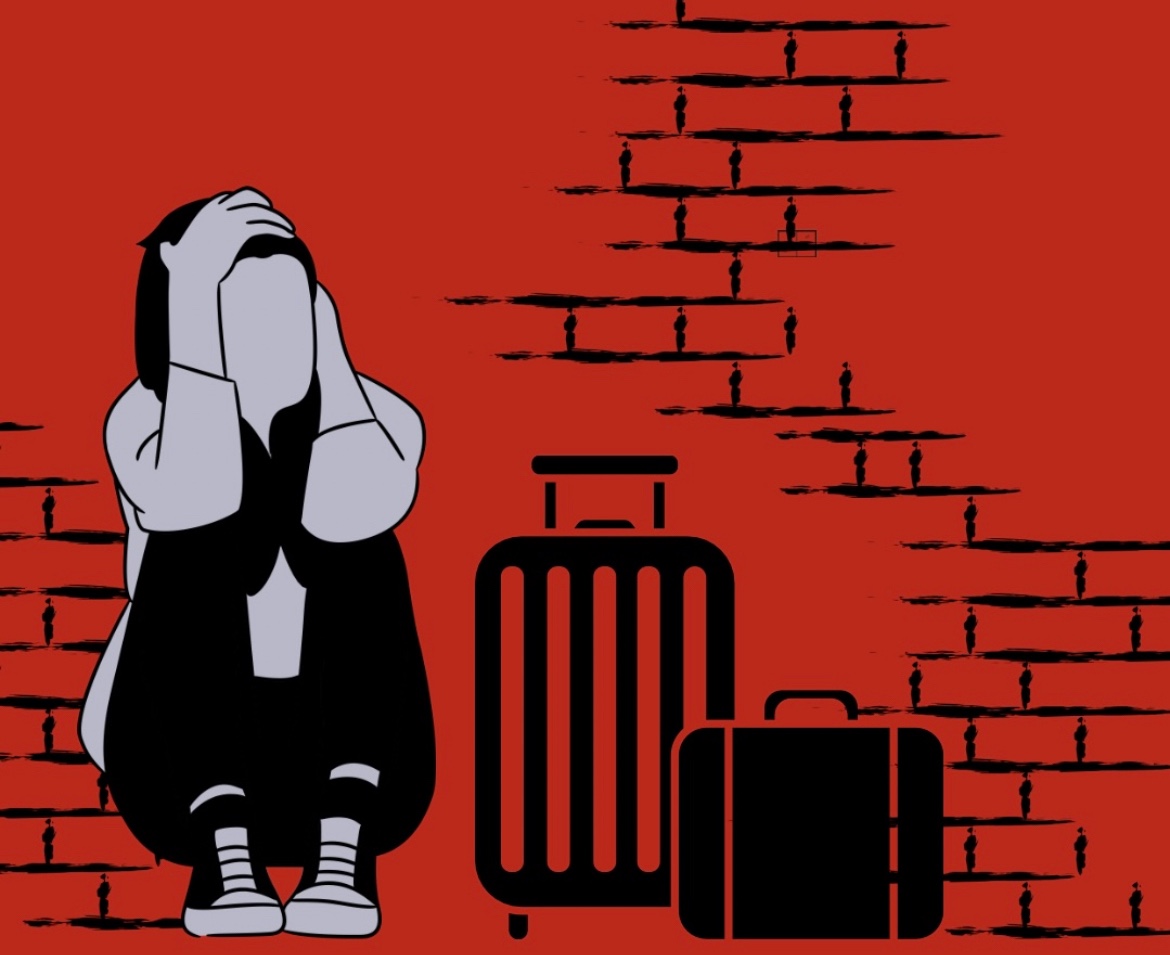CHICAGO — When South Side Chicago native Jose M. Muñoz was in his early 20s, every decision he made was to keep a roof above his newborn daughter’s head.
“If it meant that I had worked a job that, you know, didn’t necessarily pay me a fair wage or didn’t provide enough for me, I still took it. I took abuse in different ways,” Muñoz said.
Despite working multiple jobs to try to pay rent, Muñoz often ended up sleeping out of his car, at a friend’s house, and occasionally at work.
The Latino Policy Forum and Illinois Latino News (ILLN) are partnering to create a 2-year long public awareness campaign that will illuminate the most common form of homelessness experienced in the Latinx community, which is through ‘doubling-up’ or when a person temporarily lives with others.
La Casa Norte, a homelessness resource non-profit, which Muñoz is now the executive director, will be among one of the one hundred community organizations the Latino Policy Forum and ILLN will reach out to document the lives of Latinx individuals experiencing homelessness.
Over 68,000 Chicagoans are experiencing homelessness, and nearly 45,000 of them live doubled-up, according to a 2023 estimated data report from the Chicago Coalition For The Homeless. Out of nearly 20,000 Latinx people experiencing homelessness, 91% are in doubled-up situations, according to the report.
Research suggests that members of the Latinx community who lived doubled-up have been undercounted in homelessness data because multigenerational living is a common practice.
“You don’t consider those people that you’re taking in, whether it’s friends or family, as homeless people,” said Anna Arzuaga, Housing Policy Analyst at the Latino Policy Forum. “Within the Latino community, it’s so rooted in our culture.”
Centuries of racist housing practices have also left Black Chicagoans to account for 53% of all people experiencing homelessness despite only making up 29% of the city’s total population.
The awareness campaign seeks to inform housing policy to address the disproportionately affected Black and Latinx populations that are experiencing homelessness by questioning the Department of Housing and Urban Development’s (HUD) narrow definition of homelessness that currently does not account for those living doubled-up.
“Since a lot of housing assistance programs and services rely on HUD funding, these populations don’t fall within that definition that would allow them to be eligible for all of this, all of these services,” Arzuaga said.
The two organizations will document the testimonies of individuals experiencing homelessness in the form of articles, surveys, and social media campaigns while remaining transparent throughout the reporting process and following the four pillars of solutions journalism to dispel inaccurate and pervasive narratives that lead a person to experience this.
“By focusing on problem-solving strategies rather than simply highlighting issues, we hope that our coverage will present a more comprehensive, constructive, and hopeful narrative, building trust with the public and inspiring action,” said Hugo Balta, ILLN owner and publisher.
Raising the City’s real estate transfer tax on property sales to fund homelessness intervention efforts
In 2018, housing advocates launched the ‘Bring Chicago Home’ campaign, which calls for a dedicated revenue stream that would provide permanent affordable housing and wraparound services to those experiencing homelessness by increasing the tax rate buyers pay on property sales over $1 million.
Chicago’s City Council adopted and passed a binding referendum in early November. It will now be up to voters to decide if it will be implemented in March. Advocates anticipate that the increase in rates would generate approximately $100 million per year, specifically allocated towards constructing housing and offering outreach assistance to individuals facing homelessness. The Forum participated in Bring Chicago Home campaign meetings and supports the measure.
Major U.S. cities like Denver, Seattle, Los Angeles, and San Francisco have already created dedicated revenue streams to help curb the crisis.
Though tackling homelessness hasn’t been easy for many of them.
In December 2022, California Mayor Karen Bass announced the ‘Inside Safe’ program, which placed homeless people temporarily into motels intending to get them permanent housing and resources for substance abuse and mental health counseling, according to a November report by NBC Los Angeles.
But the program has moved only about 4% of the city’s 46,000 homeless inside into motel rooms and has found permanent housing for only about 255 of them, reports show.
“We’re dealing with bureaucratic barriers, and we’re trying to address those. And those barriers are on a federal level, on a county and a city level,” Bass told PBS News Hour in June when asked about plans to move people into permanent housing.
By highlighting real stories, collecting data, and critically analyzing the attempts of other major cities to solve the crisis, the partnership between the Latino Policy Forum and Illinois Latino News hopes to carve comprehensive solutions to homelessness to ensure every human being has access to affordable, permanent, and quality housing.
“Homelessness is, in a way, an invisible societal problem,” Arzuaga said. “I think the very first step of bringing awareness is to just humanize it amongst audiences.”
SUGGESTION: Read Doubled-Up Living vs. Multigenerational Homes: A Latino Perspective by Anna Arzuaga, Housing Policy Analyst at the Latino Policy Forum.

Jacqueline Cardenas is the proud daughter of Mexican immigrants. She aspires to become a political reporter so she can expose injustice and propel meaningful change. Twitter: @jackiecardenas_
Publisher’s Notes: Illinois Latino News, in partnership with the Latino Policy Forum, thanks the generous support of Chicago Funders to End Homelessness (CFTEH) in providing the funding to make the special coverage possible.
You can support stories like this one by donating to IL Latino News, HERE.
